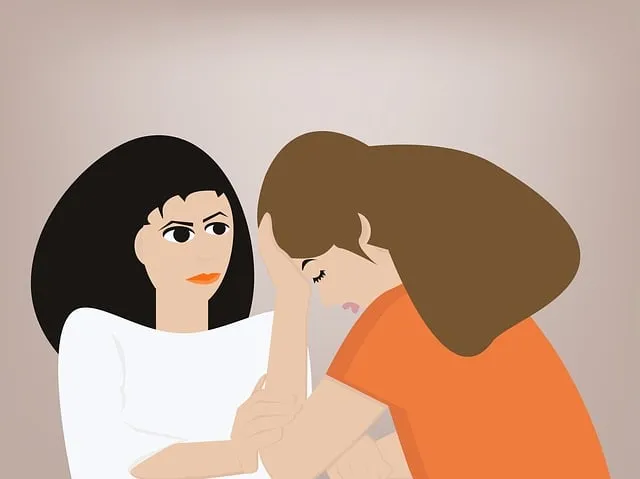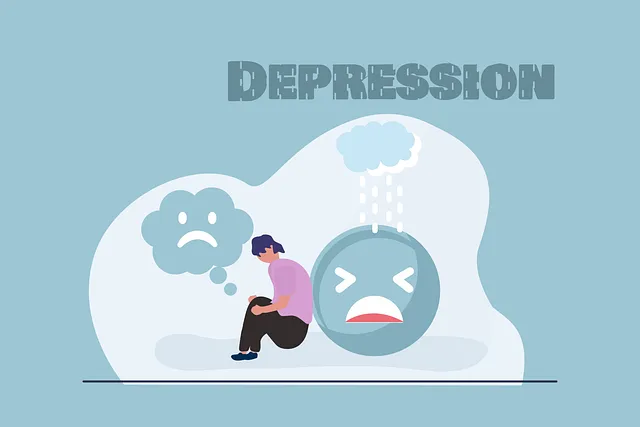In Castle Rock, where stigma surrounding mental illness hinders support, Kaiser Permanente training programs play a pivotal role in fostering understanding and compassion. These initiatives, focusing on mental wellness principles, self-esteem improvement, and awareness, aim to break down barriers and create an inclusive ecosystem for mental health care. Through comprehensive training, skill development, and community engagement, Kaiser Permanente's holistic approach promotes open dialogue, reduces stigma, and empowers both healthcare professionals and residents to address mental health challenges effectively.
Mental illness stigma remains a significant barrier to support and treatment, perpetuating isolation and hindering recovery. This article explores efforts to reduce this harmful societal construct through diverse initiatives. We delve into understanding the stigma’s root causes, examining Kaiser Permanente’s impactful training programs for healthcare professionals, and highlighting Castle Rock as a community model for successful change. Additionally, we discuss measuring success in stigma reduction efforts, emphasizing the importance of evaluation for informed strategies moving forward.
- Understanding Stigma: Barriers to Support and Treatment
- Kaiser Permanente's Approach: Training Programs for Healthcare Professionals
- Community Engagement: Castle Rock as a Model for Change
- Measuring Success: Evaluating the Impact of Stigma Reduction Efforts
Understanding Stigma: Barriers to Support and Treatment

Stigma surrounding mental illness poses significant barriers to individuals seeking support and treatment. It often manifests as negative attitudes, stereotypes, and discrimination, leading many to suffer in silence or avoid professional help altogether. This is particularly evident in communities where mental health discussions are scarce, such as in Castle Rock, where Kaiser Permanente training programs have been instrumental in promoting understanding and compassion.
The impact of stigma can be profound, discouraging open conversations about mental wellness and hindering individuals from embracing Mind Over Matter Principles for self-improvement. By fostering an environment that encourages empathy and educates people about the realities of mental illness, Mental Illness Stigma Reduction Efforts can help break down these barriers. Through initiatives that focus on raising awareness, promoting Self-Esteem Improvement, and providing accessible resources, communities like Castle Rock can move towards a more inclusive and supportive ecosystem for those facing mental health challenges.
Kaiser Permanente's Approach: Training Programs for Healthcare Professionals

Kaiser Permanente, a renowned healthcare organization, has been at the forefront of mental illness stigma reduction through its comprehensive training programs tailored for healthcare professionals in Castle Rock and beyond. These initiatives focus on empowering medical staff to better understand and address mental health concerns with empathy and proficiency. The program emphasizes resilience building among practitioners, equipping them with the tools needed to manage stress and maintain healthy self-care routines for better mental health.
By fostering an environment of open dialogue, these training sessions encourage healthcare professionals to integrate self-esteem improvement techniques into their practices. This holistic approach ensures that patients receive not only effective treatments but also supportive care that respects their journey towards recovery. Kaiser Permanente’s commitment to such programs highlights its dedication to transforming the mental health landscape and fostering a more inclusive, understanding community in Castle Rock and beyond.
Community Engagement: Castle Rock as a Model for Change

In communities like Castle Rock, stigma reduction efforts have shown remarkable success through active community engagement. Kaiser Permanente training programs play a pivotal role in educating residents and fostering an environment where mental health is prioritized. These initiatives focus on various aspects, including coping skills development, burnout prevention, and resilience building, which are essential components of comprehensive mental wellness support.
By involving the community in conversations about mental illness, Castle Rock has created a supportive ecosystem that encourages open dialogue and reduces stigma. This model can serve as an inspiring guide for other regions, demonstrating how collaborative efforts between healthcare providers, local residents, and organizations can lead to significant positive changes in attitudes towards mental health.
Measuring Success: Evaluating the Impact of Stigma Reduction Efforts

Measuring success is a vital component of evaluating the impact and effectiveness of stigma reduction efforts. Organizations like Kaiser Permanente have pioneered training programs in Castle Rock, integrating initiatives that address mental illness with innovative approaches such as Stress Reduction Methods, Conflict Resolution Techniques, and Stress Management Workshops. These programs not only aim to enhance understanding but also to foster empathy and promote supportive environments.
The impact of these efforts can be assessed through various metrics, including participant feedback, changes in attitudes and behaviors observed both within the organization and in the broader community, as well as improved access to resources and support for individuals facing mental health challenges. By tracking such indicators, organizations can tailor their strategies, ensuring that stigma reduction remains a dynamic process that evolves with the needs of those affected by mental illness.
Mental illness stigma reduction is a multifaceted effort that requires the involvement of healthcare professionals, community engagement, and measurable impact evaluation. Initiatives like Kaiser Permanente’s training programs and the model program in Castle Rock demonstrate the potential for significant progress. By addressing barriers to support and treatment through education and community outreach, we can create a more inclusive and understanding society. These efforts not only enhance access to care but also foster a culture where mental health is prioritized and supported.






